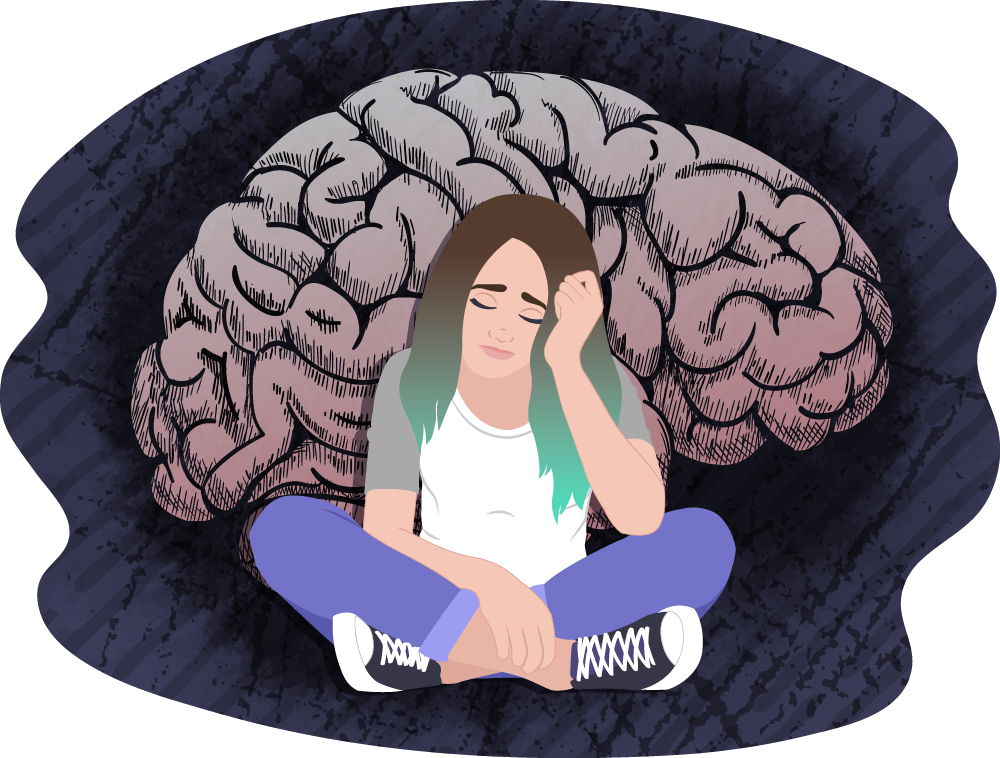Coping with depression
Depression can really bring you down, but there are some simple steps ...
READ METhere are lots of theories about what causes depression. Let’s explore what happens in your brain when you feel depressed.

“One of the main symptoms of feeling depressed or having depression is a lack of balance between the parts of your brain that control your ability to regulate your emotions and motivate yourself or achieve goals.”
– Amanda, Kids Helpline Counsellor
Many people who feel depressed experience ‘negative rumination' (overthinking about negative things). But this overthinking about bad stuff could actually help us solve important, complex problems!
According to this theory, we might experience changes in our brain or body that stop us getting distracted, so we can focus on our stressful problems.
These changes include some familiar symptoms of depression – like low energy and no interest in things we used to enjoy.
If this theory is right, these periods of ‘negative rumination’ were evolved to last a short time, and once we solved a problem, we would start to feel better.
But modern life is very complicated! If people are trying to deal with overwhelming problems they can’t solve for a long period of time, they might get ‘stuck’ and feel depressed long-term.
Now think about the last time you were sick with a cold or flu. Besides the flu symptoms, like a runny nose or cough, you probably experienced some of these…
Looks a bit like depression, doesn’t it?
There is actually a scientific theory that inflammation may play a role in depressive symptoms.
Your body responding to inflammation mimics how it might respond to a contagious virus. This might explain some symptoms of depression, like feeling tired and withdrawing from social activities. These symptoms might:
Help you get rest, so you can fight off disease
Prevent the spread of an illness if it’s contagious
Avoid stress, because stress can make your immune system less effective
Stop you from catching other illnesses when your immune system is already weakened
“Illness, injury, stress and eating unhealthy foods are some of the things that can increase inflammation in the body.”
– Amanda, Kids Helpline Counsellor
These factors affect different people differently.
Coping with depression
Depression can really bring you down, but there are some simple steps ...
READ MEDepressive disorders
Most people have experienced feeling depressed, but not everybody has a depressive ...
READ MEAll about depression
Depression is more than just feeling sad. It's a mixture of thoughts, ...
READ MESelf-care
Looking after yourself is an important coping strategy. Let’s look at ...
READ METalking helps! We’re here for you.
No problem is too big or too small.
We're here 24 hours a day, 7 days a week